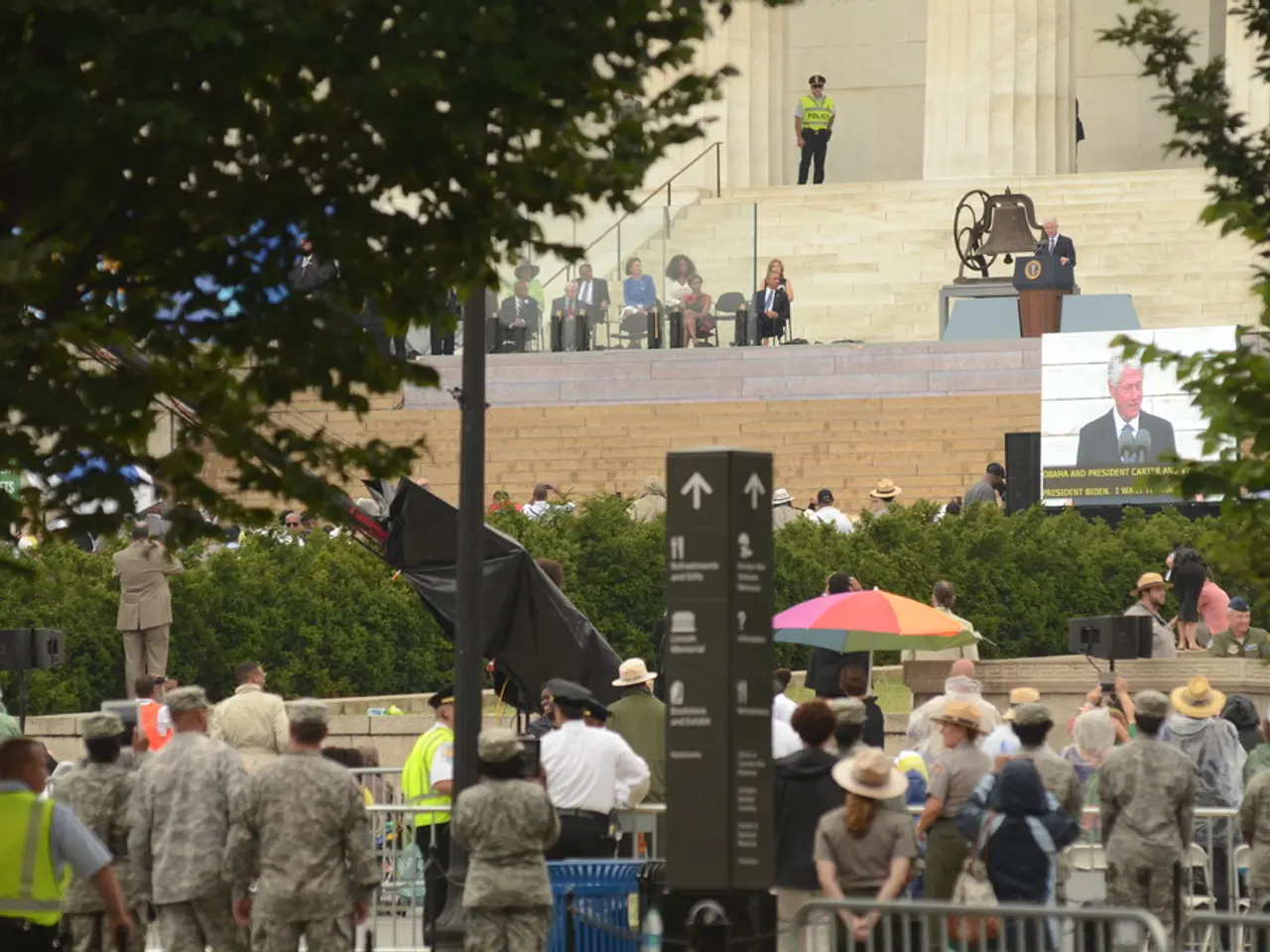Negotiations between Iran and the IAEA and EU regarding nuclear matters are viewed favorably by Iran prior to the September deadline.
In the midst of ongoing tensions, Iran and the International Atomic Energy Agency (IAEA) are maintaining authorized contacts, even amidst legislation aimed at suspending relations. This was confirmed by Foreign Ministry Spokesman Esmaeil Baghaei.
The dialogue between the two parties comes after a series of significant events. Following the European powers' referral of their dispute with Tehran to the UN Security Council in August, a meeting took place in Doha. This meeting, between Iran and the EU's Foreign Policy Chief Kaja Kallas, expressed hope for a reconsideration of the EU's approach towards Iran's nuclear program.
The talks in Doha were not the only meetings held recently. Iran and the IAEA are scheduled to meet in Cairo on Tuesday, September 16, 2025, to finalize a new cooperation agreement. This agreement comes in the wake of the June attacks on Iranian nuclear facilities by Israel and the USA.
The discussions will focus on establishing a new format of cooperation after Iran's civilian nuclear sites were bombed. The IAEA has concluded that Iran's views on a new mode of cooperation should be heard and its concerns addressed.
The talks between Iran and the IAEA are not limited to Cairo. Previous discussions in Vienna were reported as positive, although the date for the next round of negotiations has not been decided yet.
In addition to these meetings, Iran is in contact at the ministerial and deputy ministerial levels with the relevant authorities of the EU for negotiations regarding its nuclear program. This contact is crucial as Iran, along with China and Russia, has sent a joint letter rejecting the call by the European troika for the snapback of nuclear sanctions.
The UN Security Council is expected to discuss the letter regarding the demand to return Iran's sanctions in September. Other members of the UN Security Council are reported to be dissatisfied with the E3's move to call for the snapback of nuclear sanctions under Resolution 2231.
Russia and China have proposed a resolution to extend Iran's nuclear sanctions exemptions for six months and continue negotiations on whether to remove or reimpose the sanctions. However, a draft bill in the Iranian Parliament suggests Iran's withdrawal from the Non-Proliferation Treaty if the nuclear sanctions are reimposed, but no decision has been made in this regard.
Despite these challenges, Iran's Foreign Ministry spokesman has stated that Iran is a member of the Non-Proliferation Treaty and is abiding by its obligations. The decision regarding Iran's withdrawal from the treaty, if the nuclear sanctions are reimposed, will be made at the supreme level of the country.
The UN Security Council will discuss the letter in September, whether to agree with the demand to return Iran's sanctions or turn it down. Iran has proposed redefining its ties with the IAEA following the bombing of its nuclear sites under UN safeguards. The outcome of these discussions will shape the future of Iran's nuclear programme and its relations with the international community.
Read also:
- Tobacco industry's suggested changes on a legislative modification are disregarded by health journalists
- Trump's Policies: Tariffs, AI, Surveillance, and Possible Martial Law
- Uncovering Political Ad Transparency: A Guide to Investigating opponent's Political Advertisements in the Digital Realm
- Elon Musk praises JD Vance's debate performance against Tim Walz








